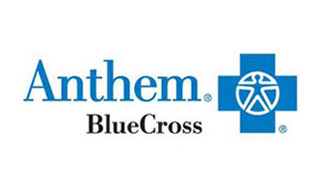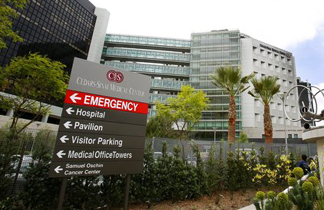Tag Archives: Insurance
Nonprofit Blue Shield Accused Of Backing Out Of $140-Million Charity Pledge
by Chad Terhune, Los Angeles Times

Blue Shield’s corporate conduct has come under intense scrutiny for the past year after officials revoked its longtime state tax exemption. Auditors at the California Franchise Tax Board criticized the insurer for stockpiling “extraordinarily high surpluses” of $4 billion and for failing to offer more affordable coverage as a nonprofit. California Insurance Commissioner Dave Jones is also investigating Blue Shield’s disclosures on executive compensation. Read More ›
CFC Saved Drivers Over $15 Million On Insurance In 2015
Hartford and Safeco had both sought to boost auto insurance rates by almost 7%, but CFC challenged the rate hike proposals. The result: $5 million in auto policy savings for Hartford customers and $10 million for Safeco customers. In August, GEICO agreed to pay $6 million to settle CFC’s complaint alleging the insurance giant violated civil rights and insurance law by targeting women and unmarried, lower-income motorists with deceptive and inflated automobile insurance rate quotes. It is difficult to calculate motorists’ potential savings resulting from the settlement, but CFC estimates it may reach several million dollars annually. Read More ›
Beware The Fine Print: Arbitration Everywhere, Stacking The Deck Of Justice
by Jessica Silver-Greenberg and Robert Gebeloff, The New York Times

The move to block class actions was engineered by a Wall Street-led coalition of credit card companies and retailers, according to interviews with coalition members and court records. Strategizing from law offices on Park Avenue and in Washington, members of the group came up with a plan to insulate themselves from the costly lawsuits. Their work culminated in two Supreme Court rulings, in 2011 and 2013, that enshrined the use of class-action bans in contracts. The decisions … upended decades of jurisprudence. Read More ›
Utilities Spend Lots Of Public’s Money To Influence State Politics
by Teri Sforza, The Orange County Register

“Your No. 1 example, PG&E, is textbook!” [said Chapman University political science professor Mark Chapin Johnson.] “They answer to the state through the PUC, not their shareholders. … Whenever PG&E wishes to contribute vast sums of ratepayers’ monthly payments to the political process, all PG&E needs do is gain permission to raise rates with the PUC to cover such contributions. Public shareholders or ratepayers have no say in the process. Is this a great system or what? Talk about incestuous!” Read More ›
Consumers Can Check Medical Prices, Quality Scores On New State Website
by Chad Terhune, Los Angeles Times

California and 44 other states received a failing grade in an annual report card that measures how much access patients have to actual prices for medical care. The new online tool seeks to remedy that. … Consumers could use the website to check whether the price they were quoted for a routine lab test or procedure is out of line with the average cost in their community. Armed with that information, a patient could shop around or negotiate for a lower fee. … Researchers said the data also show a wide variation on the quality of care that patients receive from different providers.
Read More ›
Auto Insurance Company GEICO Pays Out Multi-Million Dollar Settlement
by Tom Vacar, Fox 2 (KTVU Oakland)

The Consumer Federation of California charges that GEICO tried to discourage less preferable customers. Those include those not college-educated, not professional, not executive, a woman, an unmarried person, or those not currently insured. They would not be offered those lowest legal minimum [rates]. Read More ›
Geico Pays $6M To Settle Insurance Discrimination Claim
by Kathleen Pender, San Francisco Chronicle

Geico will pay $6 million to settle a complaint alleging it illegally discriminated against women, unmarried people, blue-collar workers and those without four-year college degrees by showing them costlier auto insurance policies on its Web site than it showed other potential customers. “We believe the primary intent was to drive these folks away from Geico to someone else’s Web site or at least make sure they were paying a lot more money if they didn’t drive them away,” said Richard Holober, executive director of the Consumer Federation of America, the nonprofit advocacy group that filed the complaint. Read More ›
Geico Agrees To $6-Million Settlement In Discriminatory Pricing Case
by Nick Shively, Los Angeles Times

The agreement stems from a petition filed by the Consumer Federation of California asking the department to take action against the Chevy Chase, Md.-based insurer on the grounds that it was discriminating based on occupation, education level and other personal characteristics. The federation had tested Geico’s website and found the insurer misrepresented information for customers who were unmarried, unemployed or employed in a low-wage occupation, had not obtained a four-year college degree and had gaps in insurance coverage, according to the petition documents. Read More ›
GEICO Pays $6 Million To Settle CFC Civil Rights, Deceptive Rate Quote Complaints

GEICO agreed to pay $6 million to settle a Consumer Federation of California complaint alleging the insurance giant violated civil rights and insurance laws by targeting low- and moderate-income women and unmarried motorists with deceptive and inflated automobile insurance rate quotes. “This is an important win for all California motorists,” said CFC Executive Director Richard Holober. “GEICO is paying a price for its unfair practices, and the settlement assures that all good drivers are treated equally, whether rich, poor, or in between. It sets a new industry standard for rate quotes that are accurate and transparent.” Read More ›
Bigger May Be Better For Health Insurers, But Doubts Remain For Consumers
by Reed Abelson, New York Times

Anthem, which operates for-profit Blue Cross plans in 14 states, merging with Cigna, another large for-profit carrier, along with the planned deal for Aetna to join Humana, a smaller rival known for its private Medicare plans, would create two behemoths.
Along with the already enormous UnitedHealth Group, these companies would control nearly half of the American commercial health insurance market. … “Are these companies not big enough that they needed to be bigger?” [asked one insurance broker]. “They’re all huge.” Read More ›
Anthem To Buy Cigna, Creating Biggest U.S. Health Insurer
by Ankur Banerjee and Ransdell Pierson, Reuters

Anthem Inc said on Friday it would buy Cigna Corp for about $54.2 billion, creating the largest U.S. health insurer by membership and accelerating the industry’s consolidation from five national players to three. … State insurance regulators and federal antitrust authorities are expected to scrutinize how the Anthem-Cigna and Aetna-Humana deals would affect competition for Medicare and individual and commercial insurance. Within a few hours of the announcement, several U.S. lawmakers and a leading physicians group said they feared the pending acquisitions would hurt consumers … Read More ›
Aetna’s 21% Rate Hike Amounts To ‘Price Gouging,’ California Regulator Says
by Chad Terhune, Los Angeles Times

“Aetna’s pattern of unreasonable increases equates to price gouging in today’s market,” [said Shelley Rouillard, director of the California Department of Managed Health Care.] … Overall, the managed-care agency has found six rate increases unreasonable since 2011, and four of them were from Aetna. In May, the regulator found Aetna’s 19.2% increase for small employers unreasonable. But California officials have no power to stop health insurance rate increases. Read More ›
Out-Of-Network Costs Lurk Even At In-Network Hospitals
by Chad Terhune, Los Angeles Times

A recent report by Consumers Union found that nearly 1 in 4 Californians say they were charged out-of-network rates when they thought that a provider was in-network. Most of these people — more than 6 in 10 — assume that doctors at an in-network hospital are also in-network, yet that’s often not the case. Federal law doesn’t protect patients from surprise bills. The Affordable Care Act requires insurers to cover out-of-network emergency services at in-network rates, but it doesn’t stop doctors from balance billing. … As it stands today, the healthcare system has consumers over a barrel. Read More ›